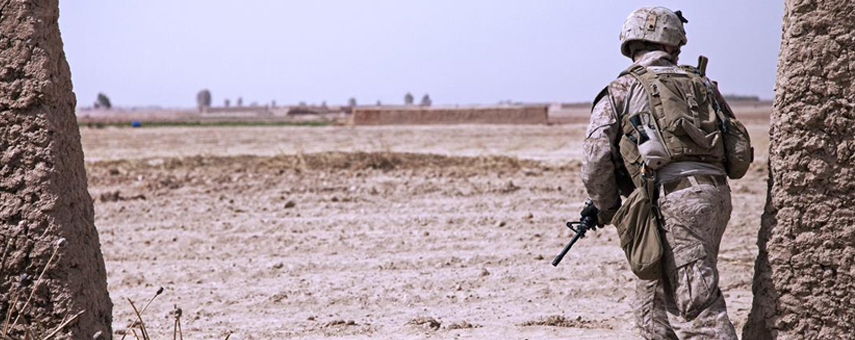Approximately 300 Marines will deploy to Afghanistan’s Helmand Province this spring, returning to the scene of some of the fiercest battles in America’s 15-year-long engagement there.
The commandant of the Marine Corps, Gen. Robert Neller, said Thursday that the troops have “no delusions about the difficulty and the challenges they’re going to face.”
The Marines will be tasked with training and advising Afghan soldiers and police in the volatile opium-rich province. Afghan security forces there have been locked in constant clashes with Taliban insurgents, who have managed to reestablish a significant presence.
Helmand sits in the country’s southwest. While geographically large, it is very rural and contains only about 3% of the Afghan population.
“The enemy has fought hard for Helmand,” Gen. John Nicholson, the commander of US forces in Afghanistan, told reporters at the Pentagon last month.
Nicholson said the Taliban “receive much of their funding from the narcotics trafficking that occurs out of Helmand,” adding that “there’s a nexus here between the insurgency and criminal networks that’s occurring in Helmand that makes Helmand such a difficult fight.”
“This is a mission we’ve always been ready for,” Lt. Gen. William Beydler, who oversees Marines in the region, told reporters last week.
The contingent of Marines will replace US Army advisers currently carrying out the mission, forming “Task Force Southwest,” to be commanded by Brig. Gen. Roger Turner Jr.
“They continue to need international support,” Turner said of the Afghan troops, noting that US personnel would be focusing on intelligence and logistics advice.
Some of the troops will be operating in the vicinity of Camp Leatherneck, the one-time home of thousands of Marines in Afghanistan.
“The Marine Corps has a deep operational history in Afghanistan, particularly Helmand Province,” Turner said, with Beydler noting that Marines first deployed to the province in 2001 and later fought battles against insurgents in Sangin and Marjah, where Marines took some of their heaviest casualties.
But the two officers were quick to downplay any symbolism in returning to a region that the Marines left after the end of formal combat operations in 2014.
“I wouldn’t read into this from a symbolic standpoint,” Beydler said. “It just so happened that it turned up now and we’re ready and we’re going.”
Neller struck a similar tone, saying, “The simple reason why we’re going back is because someone asked us if we could do this and I said, ‘yes.’ ”
Turner noted that there would be some advantages to going back, particularly when it came to rekindling relationships with America’s partners in the Afghan army.
“These are folks who we fought alongside and who we fought with and we bled with, and we think there’ll be a real synergy in reestablishing relationships,” Turner said.
“We have a lot of blood, sweat and tears invested in Helmand, and so I think a lot of the Marines are really excited about this opportunity to go back and work again with our Afghan partners,” Turner added.
This article originally appeared on www.edition.cnn.com, January 13, 2017. Original link.
Disclaimer: Views expressed in the article are not necessarily supported by CRSS.

